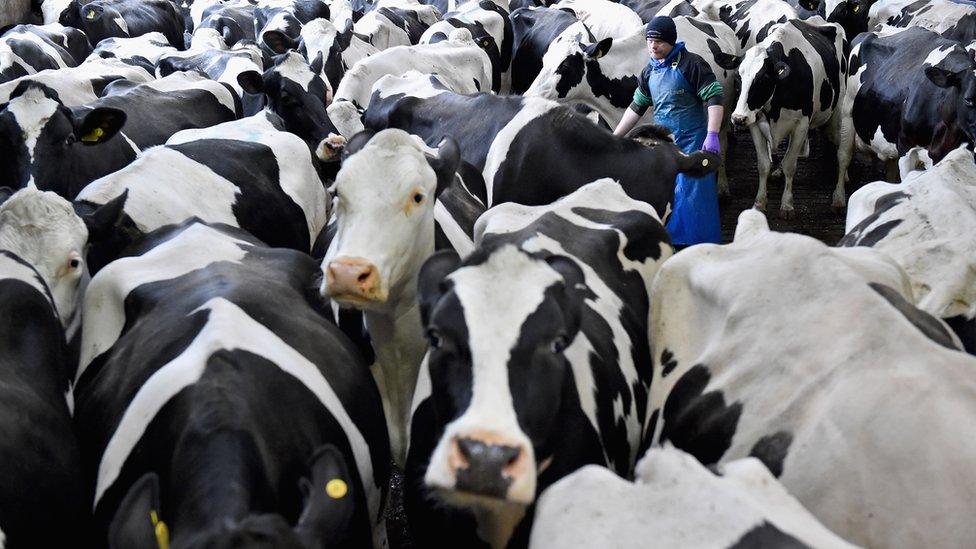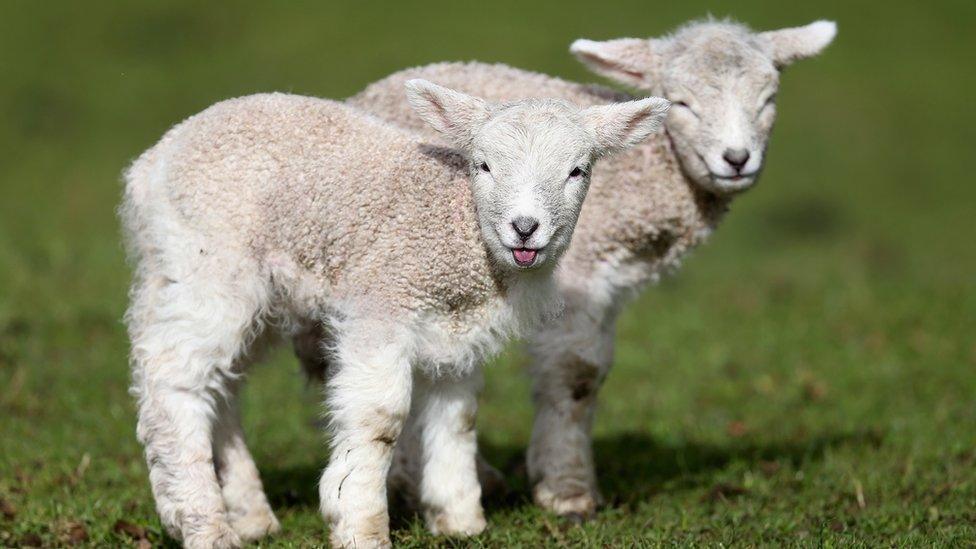Why the CBI thinks finance and farming are equal
- Published
- comments

What is more important: farming, or finance?
On paper it is easy: agriculture employs less than half a million people; financial services more than a million. Farming adds £8.5bn to the value of the UK economy, financial services £120bn.
Their Brexit concerns are very different. Agriculture is worried about potential average tariffs of 22.5% on meat imposed on non-EU countries and needs access to low-skilled labour to harvest and process food.
Finance is worried that foreign banks based in the UK will lose the right to sell their services throughout the EU from their substantial London operations.
When it comes to Brexit - which one do you prioritise? Neither - at least not according to the employers' group the CBI.
In its most comprehensive surveys of the post-Brexit needs of its members, it is urging the government to take a "whole economy" approach to negotiations. The success or failure of some sectors have knock-on effects for others. Energy and environmental regulations impact construction, housing manufacturing and other sectors.
Cliff-edge
Faced with this matrix of interconnected industries, the CBI is recommending some common principles to guide the government's hand. They include barrier-free access to our largest trading partner; a flexible approach to allow access to skills and labour; and a focus on global economic relationships with UK business interests at its heart.
It also endorses a smooth transition through the EU exit, which has become common code for an early agreement on a transitional period to avoid sleep-walking over a trade and regulation cliff-edge.
That all sounds like common sense - but it also sounds vague.
Once outside the EU, the UK will have to make some precise and delicate decisions.
One of the potential benefits of being outside the union is our ability to do new trade deals on our own terms. But that is when the toughest choices between different industries will have to be made.

For example, we may want to gain better access to New Zealand or South America for our world-beating financial services. In return, New Zealand and Argentina, say, may want to send more of its plentiful lamb and beef to the UK - something presently capped by an EU import quota to protect European farmers.
At that point, the finance or farming question may become less hypothetical than it seems at the moment.
One of Theresa May's key challenges will be delivering on a promise to deliver an economy that works for all. Delivering a post-Brexit economy that works for all businesses promises to be just as challenging.